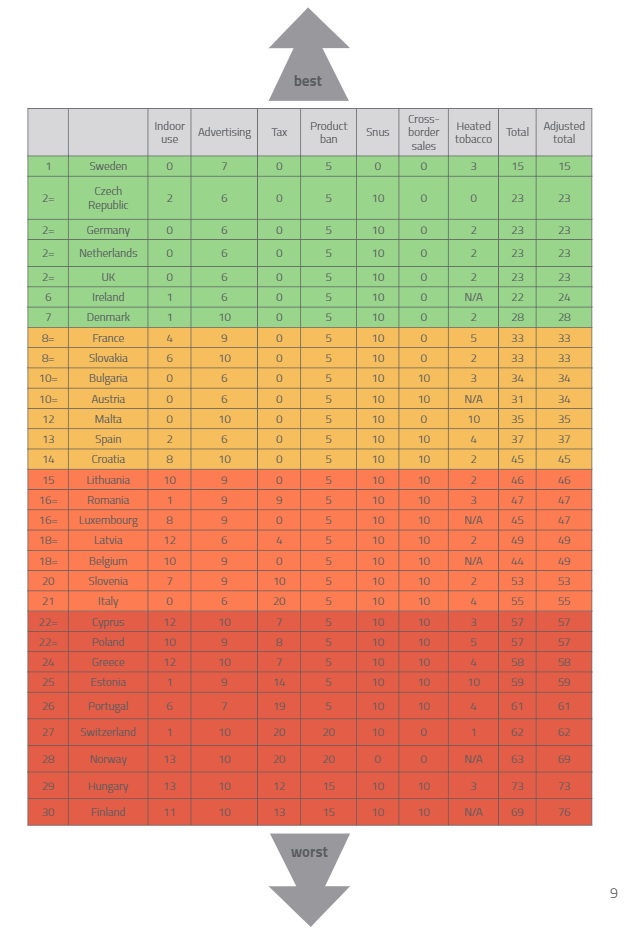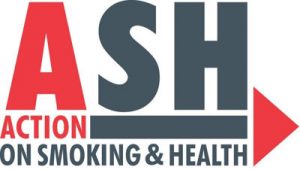Punitive Taxation and Excessive Regulation of E-Cigarettes Have Increased in Europe, Think Tank Report Shows
The European Policy Information Center (EPICENTER) recently published its annual Nanny State Index, which tracks tracks overbearing, paternalistic lifestyle regulation across Europe in four major categories: alcohol, food&soft drinks, tobacco and electronic cigarettes. For the latter, this year’s report shows an increase in both taxation and regulation, despite the ample scientific evidence that vaping is considerably safer than smoking tobacco.
 This year’s Nanny State Index for the electronic cigarettes category starts off by listing some of the major conclusions of the many medical scientific studies and reviews conducted in the last few years – the Royal College of Physicians stating that vaping is as t least 95% safer than smoking, the fact that the vast majority of e-cig users are former smokers and these devices are very rarely used by young people who have never smoked, that the gateway to smoking theory appears to be unfounded and that in countries like Britain the number of tobacco smokers started falling at an unusually fast pace around 2012, when e-cigarettes became popular.
This year’s Nanny State Index for the electronic cigarettes category starts off by listing some of the major conclusions of the many medical scientific studies and reviews conducted in the last few years – the Royal College of Physicians stating that vaping is as t least 95% safer than smoking, the fact that the vast majority of e-cig users are former smokers and these devices are very rarely used by young people who have never smoked, that the gateway to smoking theory appears to be unfounded and that in countries like Britain the number of tobacco smokers started falling at an unusually fast pace around 2012, when e-cigarettes became popular.
The index also makes it clear that there is significant variation in the taxation and regulation of electronic cigarettes across Europe, which basically means that it’s not all bad.l For instance, until 2016, several countries banned the sale of nicotine-containing e-liquid, whereas now all EU member state allow the sale of both e-cigs and e-liquid. Norway is expected to complete the legalization process of e-cigarettes this year, which leaves only Switzerland as the only European country that still has a ban on e-cigarettes.l
But this is the Nanny State Index after all, so it mostly concentrates on the countries’ paternalist approach to lifestyle products, in this case e-cigarettes and e-liquid. While prohibition appears to be a thing of the past in Europe, countries are now increasingly introducing vaping bans and excessive taxation of these products. The 2016 Nanny State Index mentioned Italy and Portugal as the only European countries to have excise tax on e-liquid. The following year, those two countries were joined by four others, and this year the number of countries taxing e-liquids has reached 12.
A similar thing happened in regard to vaping bans in places where people weren’t allowed to smoke. In 2016, nine countries had implemented such bans, and this year their number has risen to 12 as well.
The index analyzed seven categories for reduced-risk nicotine products (e-cigarettes, snus and heated tobacco), five of which related to electronic cigarettes – taxation, indoor use, cross-border sales, advertising and product bans. Based on this, each country received a certain score which was used to rank the countries by their paternalistic approach. The higher their score, the lower they ranked.
Photo: EPICENTER
Countries like Sweden and the UK have taken a more lax approach to vaping and rank in the top five in the Nanny State Index, whereas Finland or Hungary have among the most draconian regulations and highest excise taxes.
Interestingly, Italy, once one of Europe’s top e-cigarette markets, now ranks 21st out of 30, which puts it just over the worst scoring countries on the list. It scored a maximum of 20 points in the taxation category, which is unsurprising, considering that it has one of, if not the highest, excise tax on e-liquid on the continent. Believe it or not, over the years, its excise tax has increased to almost €0.40 per milliliter of e-juice. In January, Italy also banned cross-county sales of e-liquids, citing the need to protect consumers from counterfeit and low-quality products. As Today.it reports, these measures have led to the shrinking of the e-cigarette business sector and to a severe decline in the number of smokers switching to vaping.
“Taken together, these reduced-risk nicotine products offer smokers a pleasurable alternative to cigarettes, but only if governments allow access to them,” the authors of the Nany State Index write. This report looks at the obstacles consumers face, from advertising bans and sin taxes to outright prohibition. All of the criteria in the index obstruct consumers and stifle the market to a lesser or greater extent. This is bad for consumer choice. but it can also be bad for consumer’s health.”
“As Clive Bates, the former director of Action on Smoking and Health, explains, ‘if you over-regulate a new, disruptive, low-risk alternative to the dominant and deadly cigarette, you simply protect the worst product from competition’. The technology in this area is improving rapidly. Governments need to keep up,” EPICENTER concludes.

















